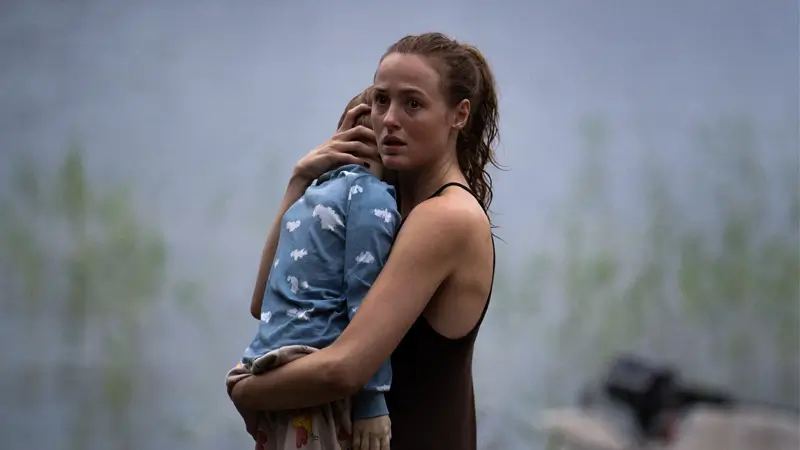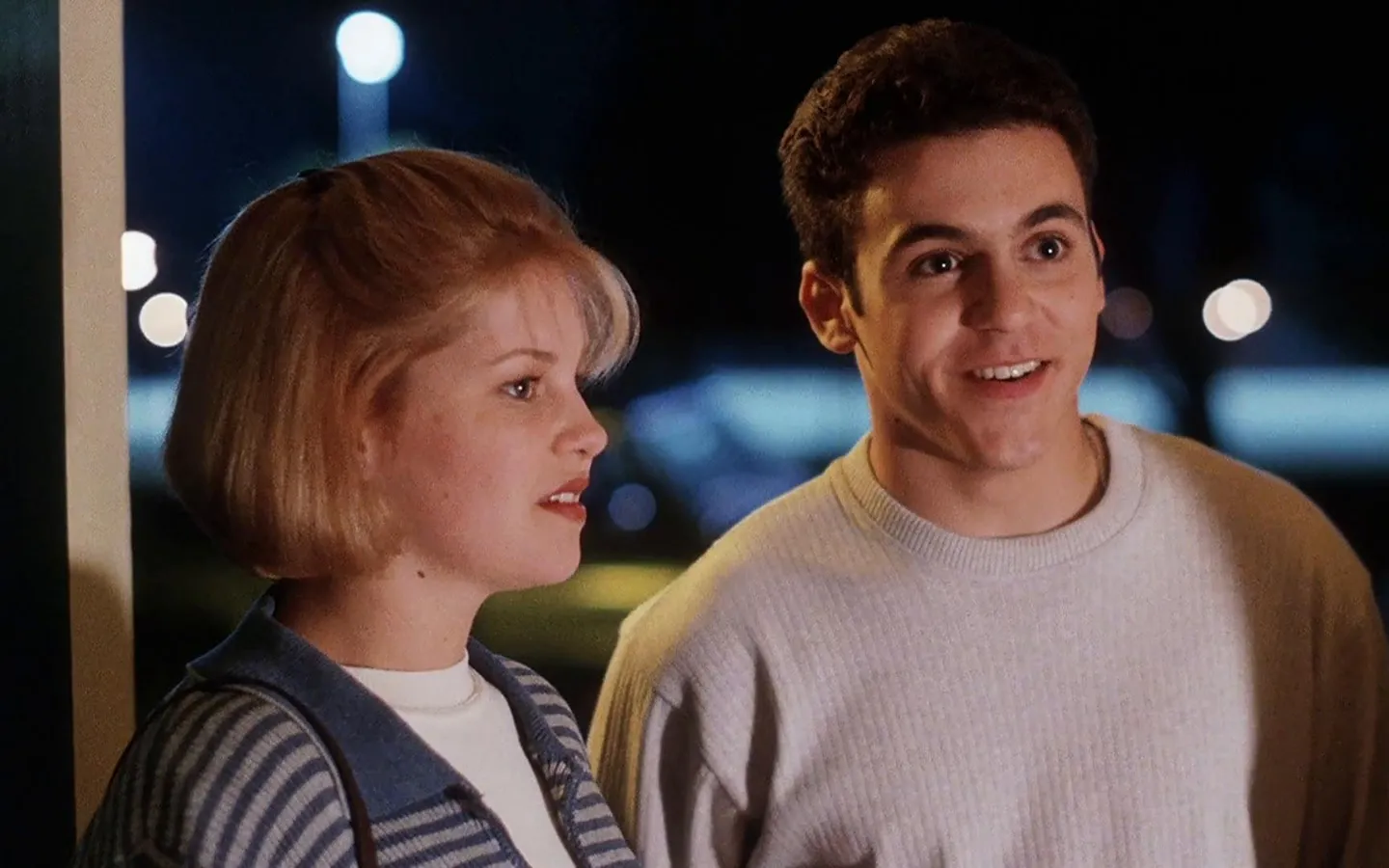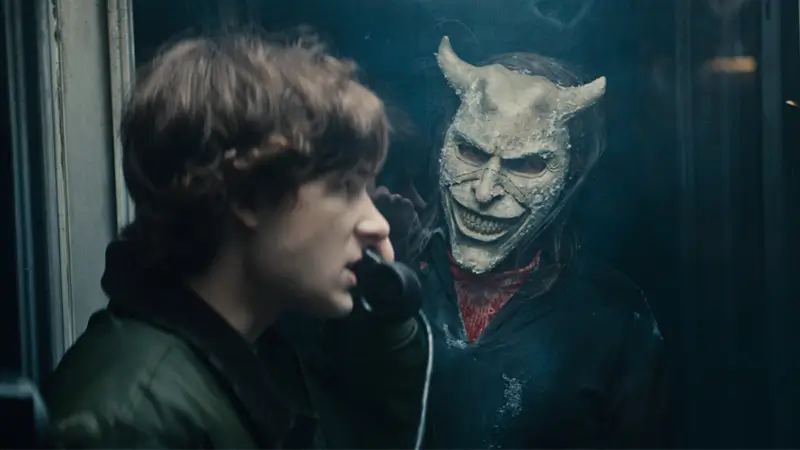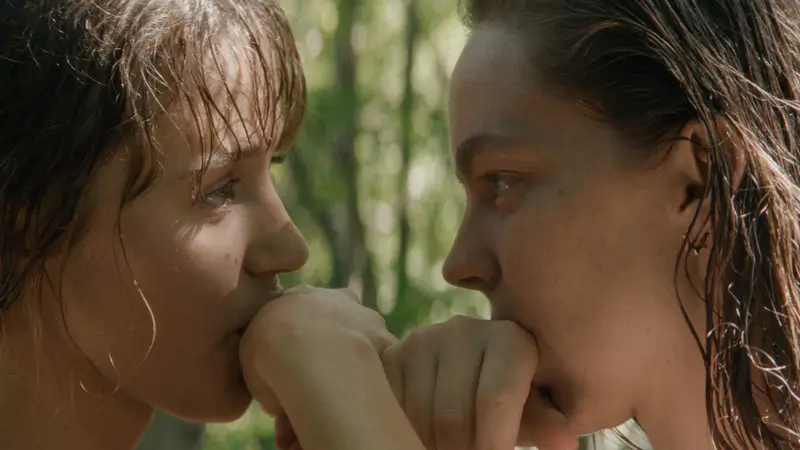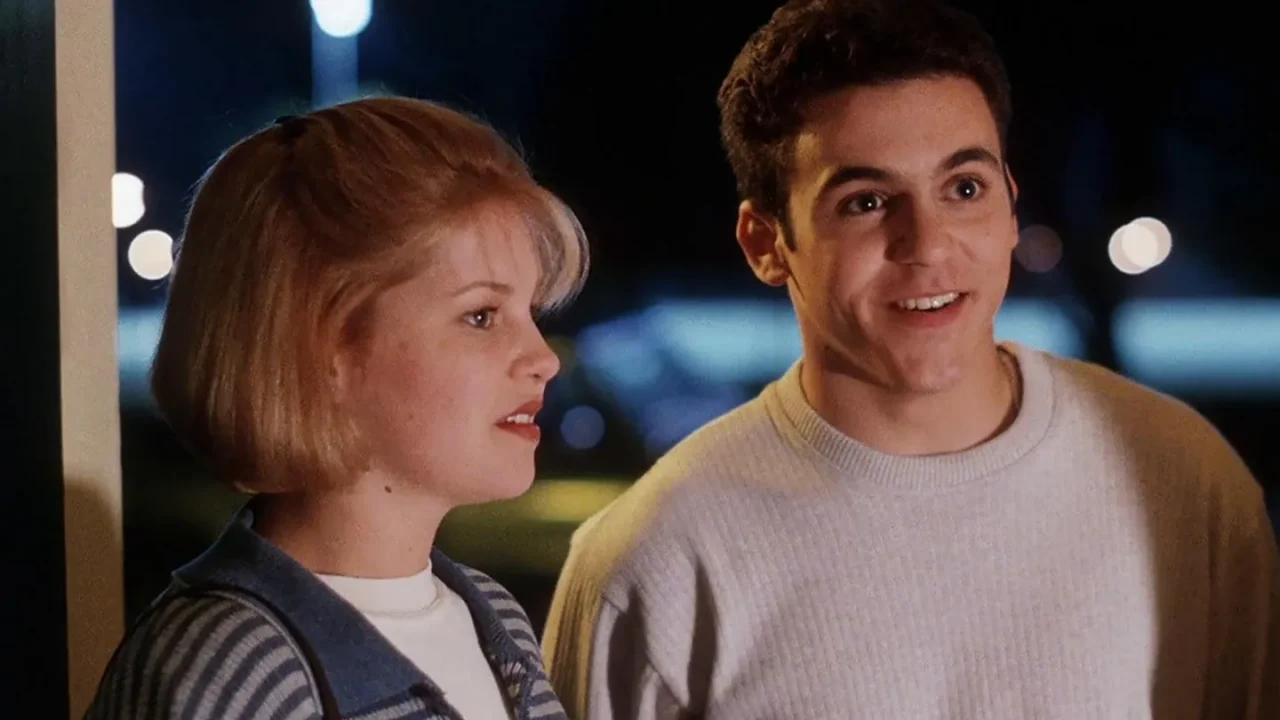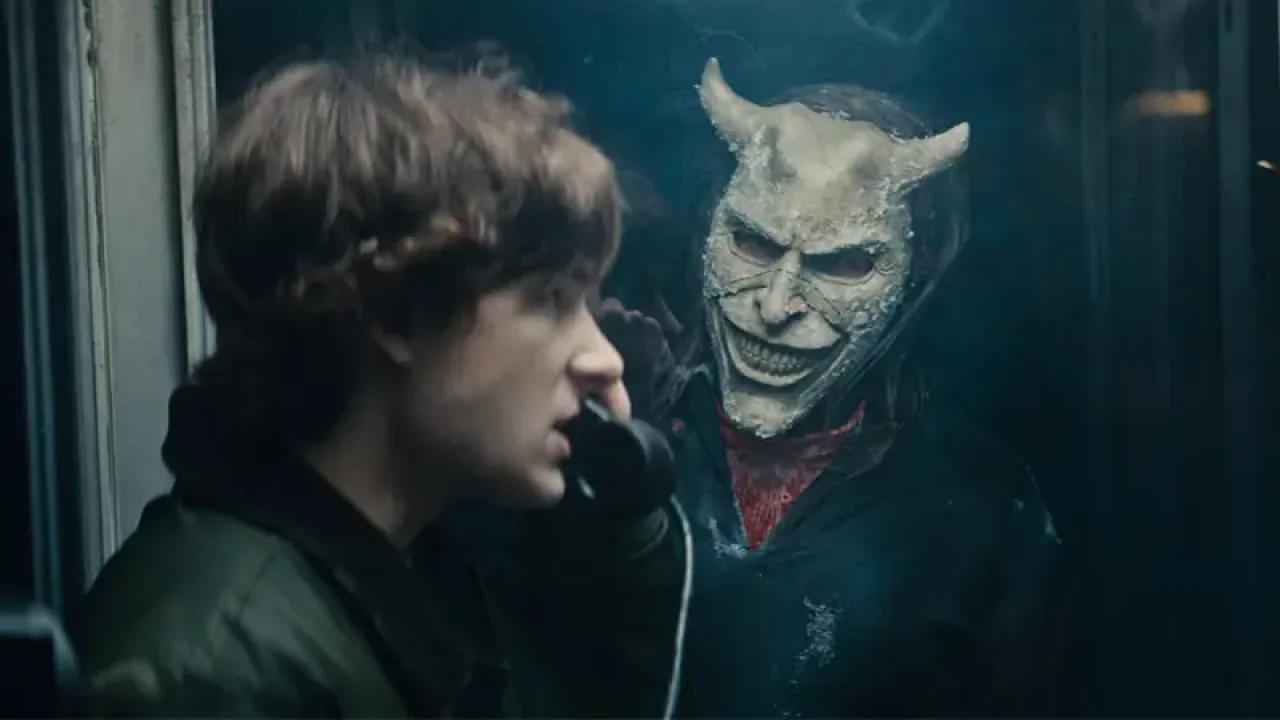In a universe saturated with superhero stories, The Boys emerges as a visceral and acidic response, deconstructing myths and exposing the underbelly of power.
The series, which has become a global phenomenon, wouldn’t exist without its masterful cast — a team of actors who fearlessly dive into the complexity of morally ambiguous characters. From Karl Urban as the vengeful Billy Butcher to Antony Starr as the psychopathic Homelander, each performance is a study in nuance and intensity.
In this article, we explore how Jack Quaid (Hughie), Erin Moriarty (Starlight), and the entire main cast transcend expectations, turning anti-heroes into pop culture icons. Discover why The Boys wouldn’t be the same without their brutal performances, which balance dark humor, human tragedy, and social critique with mastery.
The Series The Boys
Adapted from the comics by Garth Ennis and Darick Robertson, The Boys reinvents the genre by exposing the rotten side of supposed heroes. Developed by Eric Kripke, the plot follows a group of vigilantes led by Billy Butcher (Karl Urban), who challenge Vought International — the corporation that markets Supes as entertainment products.
The central premise revolves around the clash between The Seven (a team of narcissistic and corrupt “heroes”) and The Boys (vigilantes willing to do anything to unmask the fraud). With a narrative that blends acidic humor, graphic violence, and sharp social critiques, the series questions celebrity culture, militarism, and media manipulation.
A highlight is the arc of Hughie Campbell (Jack Quaid), whose life turns into a nightmare after his girlfriend is killed by the supersonic A-Train — an event that triggers his journey of revenge and discovery of the corruption behind the hero system. Meanwhile, Homelander (Antony Starr) embodies fascism disguised as patriotism, becoming one of the most disturbing villains in contemporary TV.
The series further expands its universe with spin-offs like Gen V, exploring the training of young Supes, and maintains its relevance by reflecting current ethical and political dilemmas.
The Cast of The Boys
The success of The Boys rests on a cast that embodies the duality between heroism and corruption. Each actor dives unreservedly into the ambiguity of their characters, creating a synergy that amplifies the dark humor, social critique, and narrative tension. From the protagonists to the supporting figures, the cast turns the series into a study of unforgettable characters.
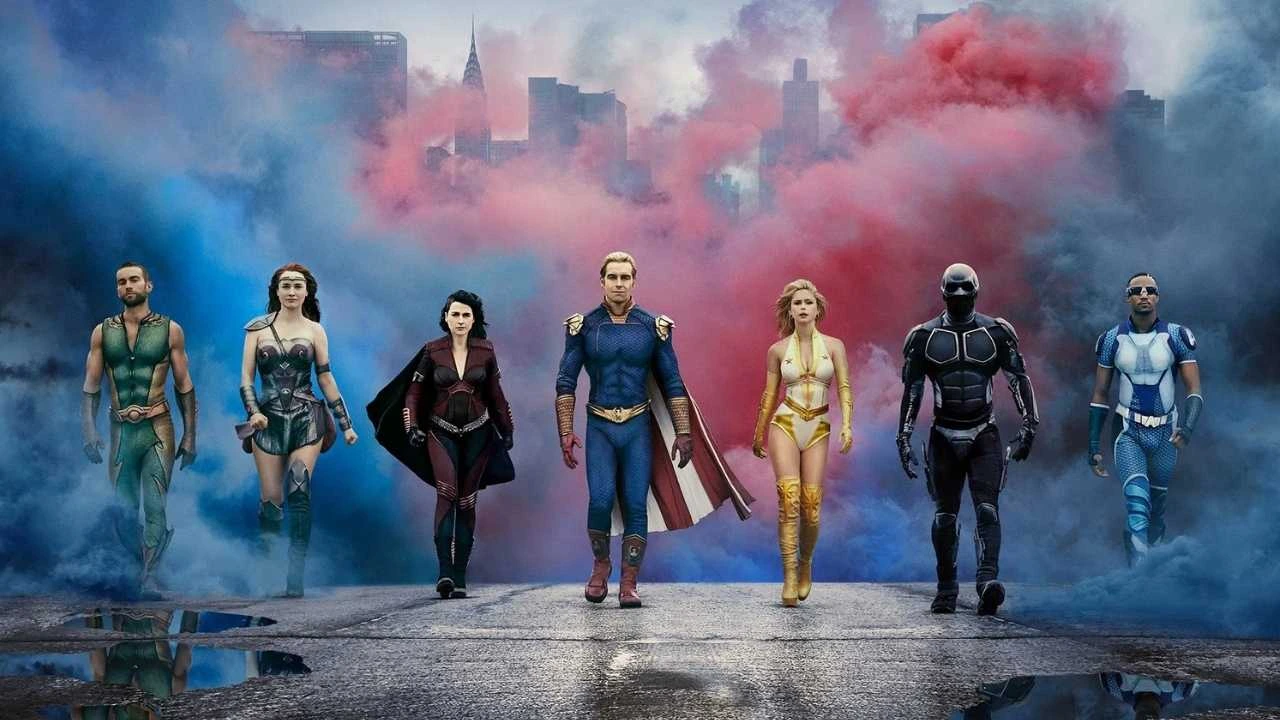
See more: Actors you know but don’t remember their names
Karl Urban as Billy Butcher
Karl Urban (Dredd) brings to life Billy Butcher, the charismatic and ruthless leader of the group challenging the corrupted superheroes. Butcher is an anti-hero driven by personal fury against the Supes, especially Homelander, whom he blames for the tragedy that destroyed his family.
Urban delivers an intense performance, balancing biting sarcasm and the character’s dark side with moments of vulnerability and humanity. In the series, Butcher is portrayed as a brilliant strategist, willing to cross any line to achieve his goals — including manipulating and putting his team in extreme situations.
His complex relationship with Hughie Campbell, marked by a mix of protection and harshness, is one of the emotional pillars of the plot. Urban’s performance has been widely praised by critics and fans, who highlight his ability to make Butcher both feared and fascinating, solidifying the character as one of the most striking anti-heroes in contemporary television.
Antony Starr as Homelander
Antony Starr (Guy Ritchie’s The Covenant) delivers one of the most memorable performances in contemporary television as Homelander, the leader of The Seven in The Boys.
Far from a simple villain, Homelander is a complex character: a sadistic narcissist, egocentric and psychologically unstable, who hides his true nature under the facade of a perfect hero.
Starr builds the character with nuance, revealing not only his cruelty and unpredictability but also traits of childishness and deep trauma, the result of an inhumane and affectionless upbringing.
Throughout the seasons, Starr’s performance highlights Homelander’s duality — capable of seemingly kind gestures in public but brutal and manipulative behind the scenes. The actor has been widely praised for avoiding exaggeration, making the character terrifying precisely because of his distorted and unpredictable humanity.
Jack Quaid as Hughie Campbell
Jack Quaid (Novocaine) portrays Hughie Campbell, the protagonist who serves as the moral heart of The Boys.
Initially introduced as an ordinary and vulnerable young man, Hughie is propelled to join the vigilante group after the tragic death of his girlfriend Robin, caused by the superhero A-Train. This traumatic event marks the beginning of his journey of maturation and resistance against the corruption of the Supes and the Vought corporation.
Throughout the seasons, Quaid builds a character who evolves from someone insecure and reactive to an increasingly confident and resilient member of the team. His relationship with Billy Butcher and Starlight is central to the plot, providing moments of tension, loyalty, and emotional growth.
Erin Moriarty as Starlight
Erin Moriarty (Blood Father) portrays Annie January, aka Starlight, in The Boys, bringing depth and humanity to the character who represents the most idealistic and upright side of the series’ universe.
Starlight begins her journey as a hopeful young heroine, raised in a religious environment with solid values, but soon confronts the harsh reality behind the scenes of superheroes and the Vought corporation.
Moriarty highlights that the character, initially naive, matures over the seasons, facing adversities and traumas without losing her genuine desire to do good and be a true heroine.
Moriarty’s performance is marked by emotional delivery and the complexity with which she builds Starlight, showing her vulnerabilities, doubts, and strength in the face of the injustices and abuses she witnesses.
Karen Fukuhara as Kimiko
Karen Fukuhara (Bullet Train) portrays Kimiko Miyashiro, known as “The Female,” in The Boys, bringing one of the most enigmatic and emotionally complex characters in the series.
Kimiko is a super marked by a traumatic past: a victim of experiments and trained as an assassin by the Shining Light Liberation Army, she carries the weight of countless lives taken in her youth. Her muteness is not the result of physical trauma but psychological, stemming from regret and guilt for her actions — a choice developed in collaboration between Fukuhara and showrunner Eric Kripke, to keep open the possibility of evolution and hope for the character.
Throughout the seasons, Kimiko evolves from a wild and silent figure to someone seeking redemption, belonging, and human connection, especially through her relationship with Frenchie. Fukuhara emphasizes the importance of non-verbal communication for the character, using sign language and body expressions to convey deep emotions, making Kimiko a striking presence even without words.
Laz Alonso as M.M.
Laz Alonso (Detained) portrays Mother’s Milk (M.M.), the most strategic and morally steadfast member of The Boys. As a former soldier obsessed with justice, M.M. carries the trauma of seeing his family destroyed by Supes — especially Soldier Boy, whose return reignites his desire for revenge.
Alonso builds the character with a mix of military rigidity and vulnerability, highlighting his struggle with Obsessive-Compulsive Disorder (OCD) and fear of germs, which makes him paradoxically fragile and resilient.
His performance balances acidic humor (as in scenes that challenge his OCD, involving repugnant bodily fluids) and emotional depth, especially in confrontations with Soldier Boy and his role as a father figure to the younger members of the team.
Chace Crawford as The Deep
Chace Crawford (All About Nina) brings to life The Deep, one of the most pathetic and tragicomic members of The Seven in The Boys.
With a performance that mixes narcissism and vulnerability, Crawford turns the character into a biting satire of conventional superheroes. The Deep, whose ability to communicate with sea creatures is constantly ridiculed, is portrayed as an insecure individual, obsessed with acceptance and fame but unable to escape his own moral flaws.
Crawford takes every opportunity to highlight the character’s hypocrisy, such as in scenes where he defends the rights of dolphins while ignoring human atrocities. His traumatic past — including a forced marriage to an anthropomorphic squid — is explored with acidic humor, making him simultaneously repugnant and sympathetic.
Jessie T. Usher as A-Train
Jessie T. Usher (Shaft) portrays A-Train (Reginald Franklin), the narcissistic and problematic speedster of The Seven in The Boys, whose journey oscillates between self-destructive arrogance and a belated search for redemption.
Introduced as a direct antagonist after killing Hughie’s girlfriend Robin in a shocking accident, A-Train personifies the corruption and vanity of the Supes — addicted to Compound V to maintain his powers and willing to sacrifice anyone to preserve his status.
Usher builds a character who evolves from a performative hero (who uses Afrocentric identity as a marketing strategy) to someone confronted with his own contradictions.
Jessie T. Usher’s performance has been praised for balancing tragic comedy and introspective drama, solidifying A-Train as one of the most humanly flawed — and fascinating — characters in the series.
Nathan Mitchell as Black Noir
Nathan Mitchell is responsible for bringing to life the enigmatic Black Noir in The Boys, being one of the few characters who stand out even without uttering a word. Since the first season, Mitchell has built the character with a performance based on body language and subtle expressions, conveying mystery, intensity, and even moments of silent humor.
The actor incorporated elements from his own life into the role, such as his severe nut allergy, which was used as the character’s weakness in the plot. However, Black Noir’s trajectory took a dramatic turn at the end of the third season, when the character is brutally killed by Homelander after years of guarding an important secret about Soldier Boy.
To the surprise of fans, Mitchell returned in the fourth season portraying a new version: Black Noir II, an actor hired by Vought to maintain the illusion that the original is still alive, protecting the image of The Seven and avoiding public questioning.
This new Noir, also portrayed by Mitchell, brings different nuances, as he is now a character aware of playing a role within the series’ universe, adding a layer of satire and critique of the media manipulation promoted by Vought.
Tomer Capone as Frenchie
Tomer Capone (Slingshot) portrays Frenchie, one of the characters with the richest background and charisma in The Boys.
The Israeli actor portrays Frenchie with a rich, layered construction: an explosives expert, a survivor with deep scars, and a constant ally of Kimiko, with whom he establishes one of the most solid relationships in the series.
The characterization combines technical knowledge and vulnerability, revealing a protective side that contrasts with the brutality demanded by the trade.
The partnership with Karen Fukuhara sustains a significant part of the narrative. Frenchie acts as a translator and protector of Kimiko, alternating well-humored cultural references with introspective moments about loyalty and human relationships.
Capone distances the character from the “weapons expert” stereotype, showing nuances that make him one of the most striking figures in The Boys. His performance highlights how Frenchie finds motivation and purpose in the interactions he maintains with the team.
Beyond his work in TV, Capone is also part of the cast of Slingshot (2024), in which he takes on the role of Nash, a science fiction film that takes the viewer on a mission to the moon Titan. Alongside Casey Affleck and Laurence Fishburne, Capone embodies a technical expert who navigates deep psychological crises amidst space isolation. The script explores the confusion between reality and delirium induced by cryogenic sleep, particularly in the sequence known as the slingshot — a violent maneuver aimed at propelling the spacecraft to Titan. Capone’s performance combines rising tension with fragile logic, expanding the emotional reach of the plot. Released in August 2024, it garnered attention for its claustrophobic atmosphere and minimalist visual construction, which turns the environment into an active part of the narrative.
How Does the Cast of The Boys Contribute to the Series’ Irreverent and Dark Tone?
The cast of The Boys is essential in balancing the acidic humor and graphic violence that define the series, creating a unique blend of satire and drama. Karl Urban embodies brutal cynicism with his biting sarcasm and distorted morality, while Antony Starr heightens psychological tension by oscillating between media charm and psychopathy, representing the duality between heroism and tyranny.
Jack Quaid and Erin Moriarty act as emotional anchors: he brings vulnerability and growth amidst chaos, and she contrasts idealism with disillusionment, humanizing the narrative. Meanwhile, Chace Crawford and Jessie T. Usher dive into self-ridicule, using absurdity to critique toxic masculinity and the cult of fame.
The humor emerges in performances like Tomer Capone’s, who mixes loyalty and trauma with physical comedy, and Karen Fukuhara’s, whose non-verbal communication adds layers of irony and tenderness. Even Nathan Mitchell contributes with silent mysticism, which gains meta-humorous tones as it becomes a satire of media myth-making.
Each actor embraces the moral ambiguity of their characters, allowing the series to critique themes like fascism, corporatism, and distorted ethics without losing its frenetic pace. The cast’s chemistry turns ultra-violent scenes into sharp social commentary, proving that even the grotesque can be hilarious — and deeply unsettling.
See also: Pedro Pascal movies to watch online
Conclusion
The series The Boys wouldn’t be the cultural phenomenon it is without the mastery of its cast, who turn morally ambiguous anti-heroes into memorable icons.
Karl Urban and Antony Starr embody opposite extremes — Butcher’s visceral rancor and Homelander’s charismatic psychopathy — while Jack Quaid and Erin Moriarty humanize the narrative as emotional anchors. Tomer Capone, Karen Fukuhara, and Laz Alonso complete the mosaic, balancing acidic humor and vulnerability in characters that defy stereotypes.
Each performance is a study in nuance: from Chace Crawford’s tragicomic arrogance to Jessie T. Usher’s ambiguous self-destruction, the cast builds a sharp critique of hero worship and systemic corruption.
Thus, The Boys proves that even in a universe dominated by cynicism and violence, there is room for humanity — and it’s the cast’s talent that makes this duality so fascinating.
Want to understand how these performances shape one of the most irreverent shows on TV?
Explore more in-depth analyses of series and cinema on Filmelier.



